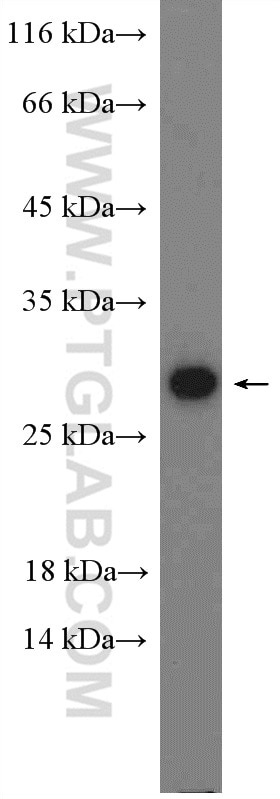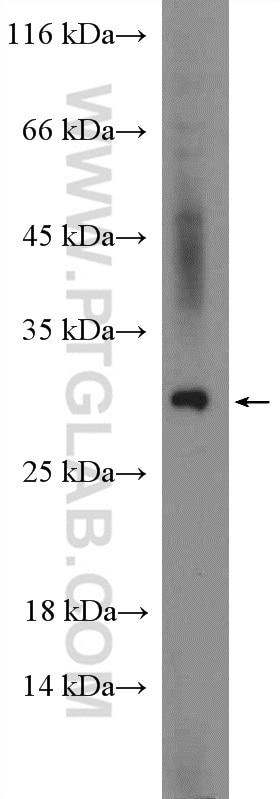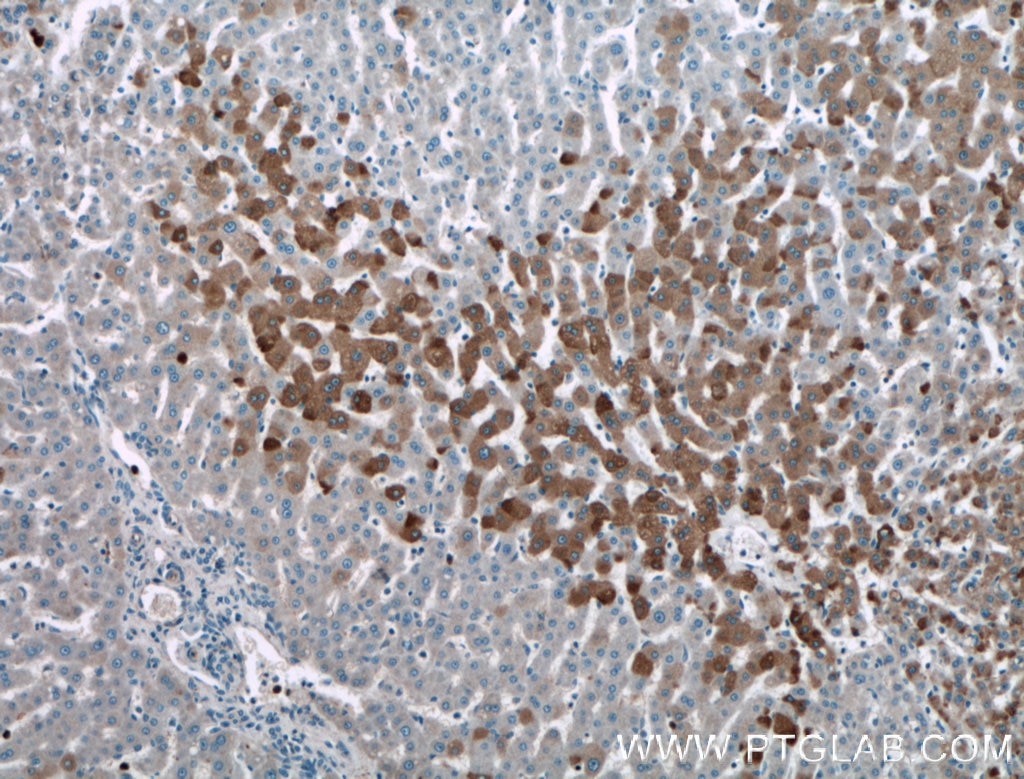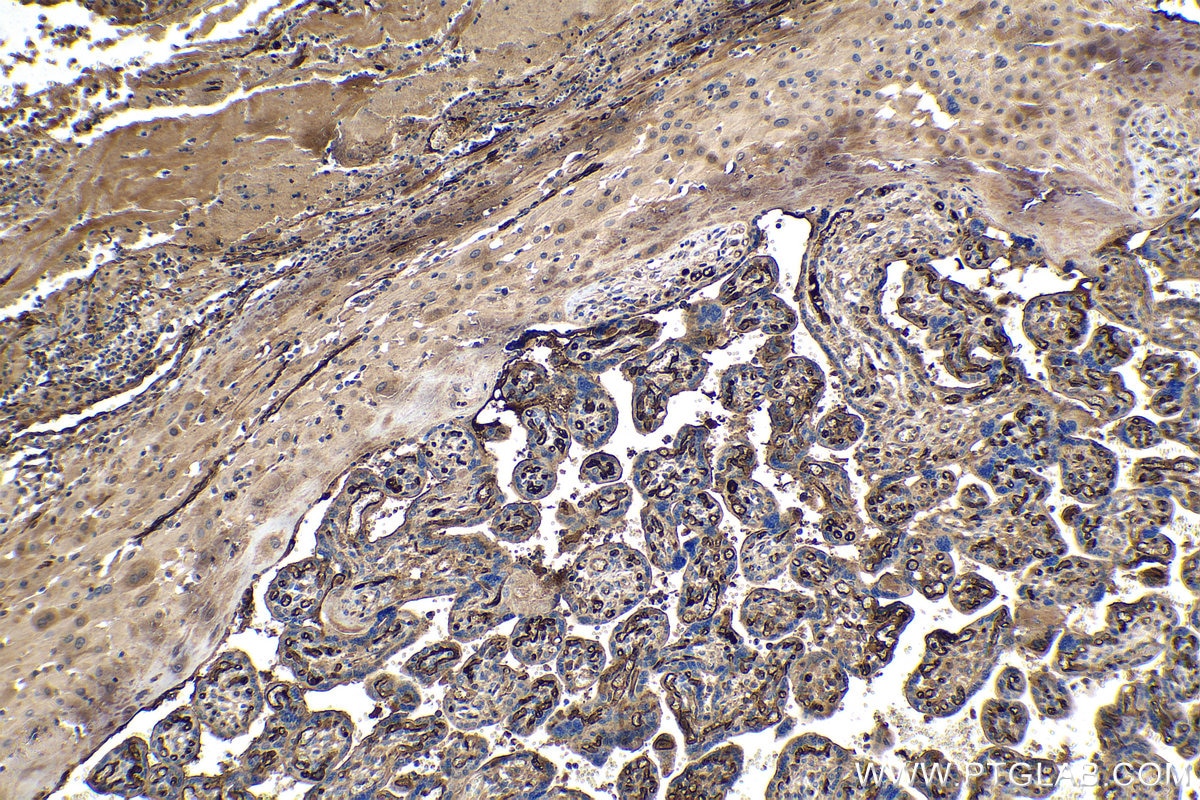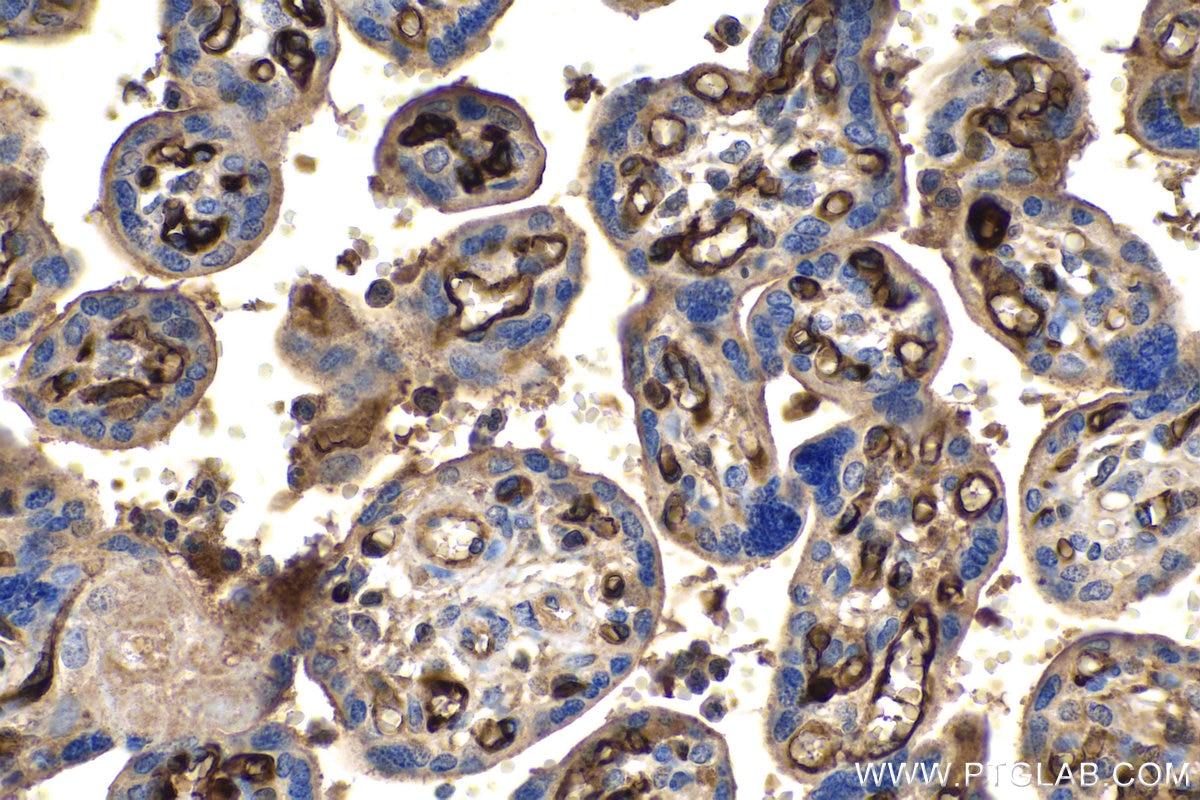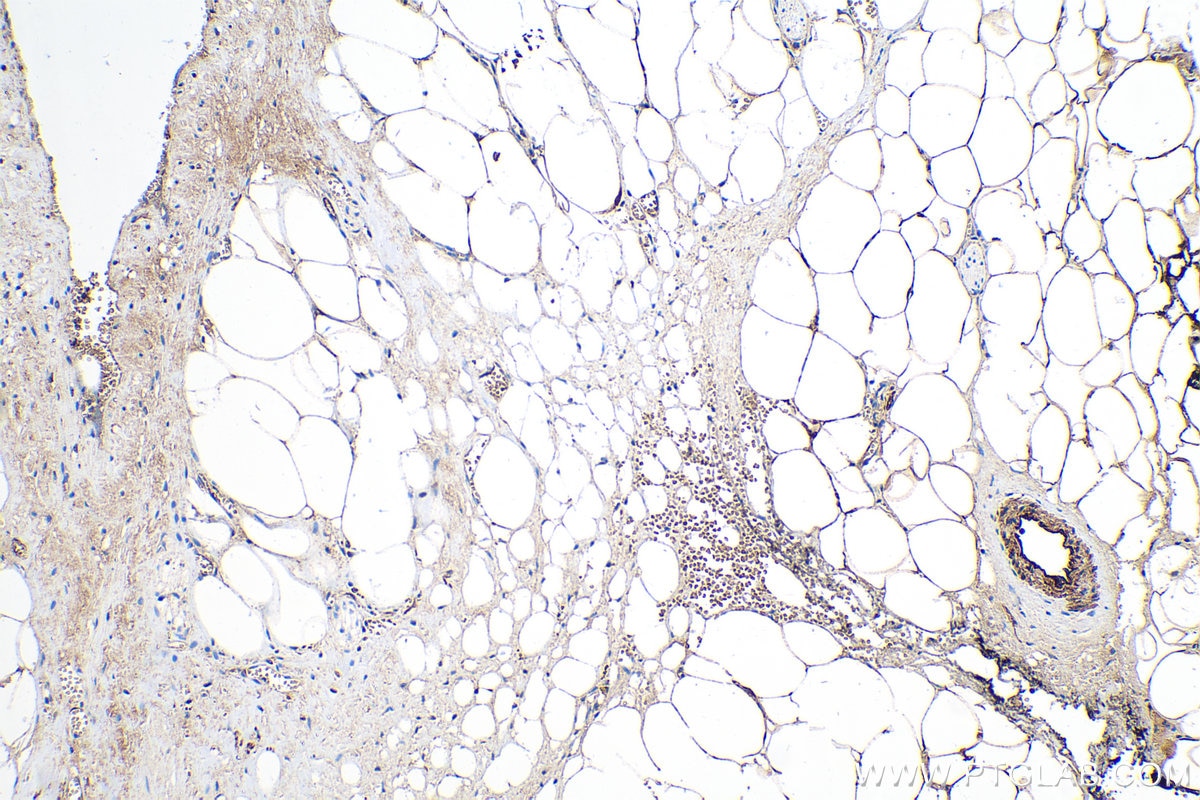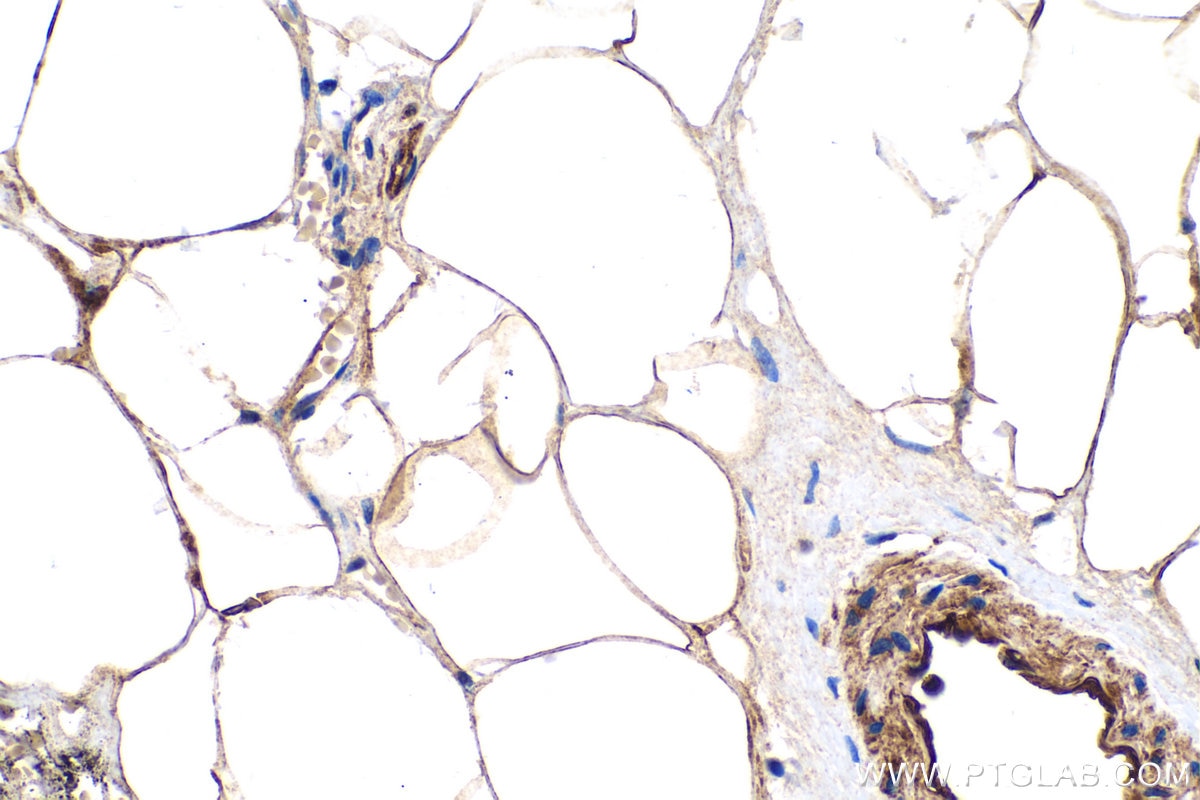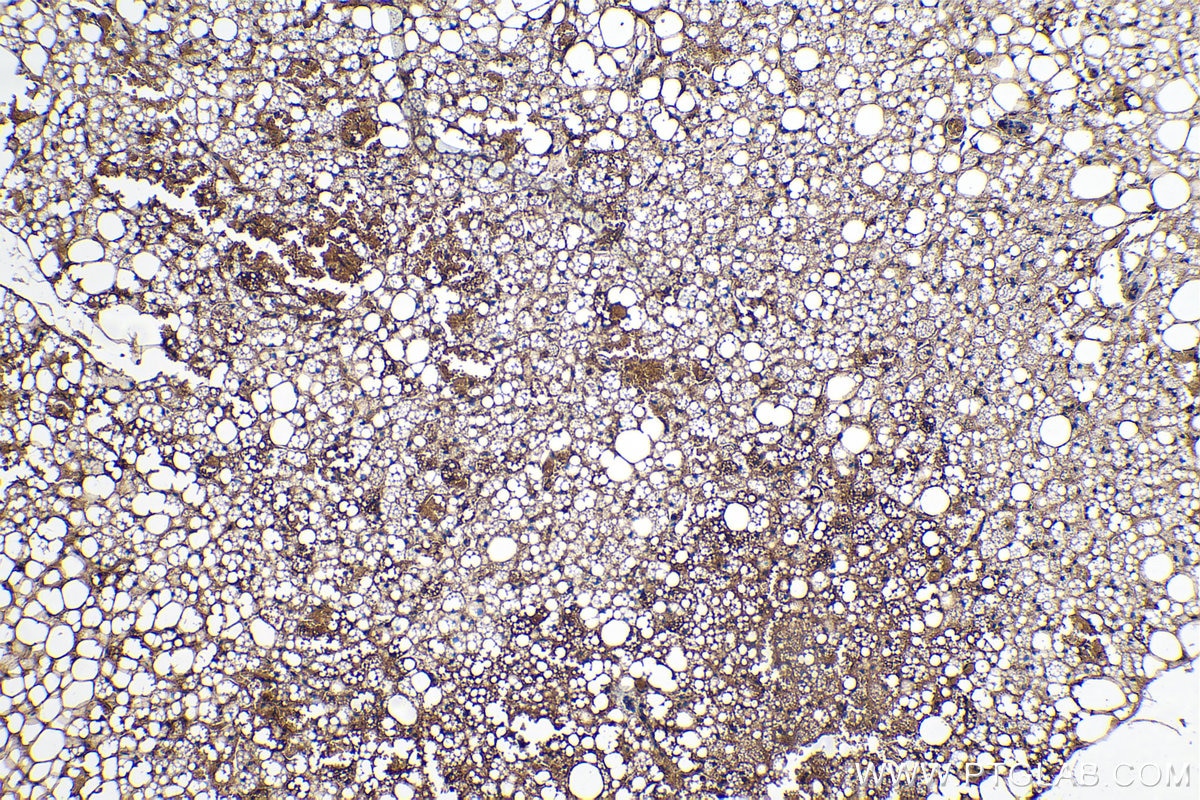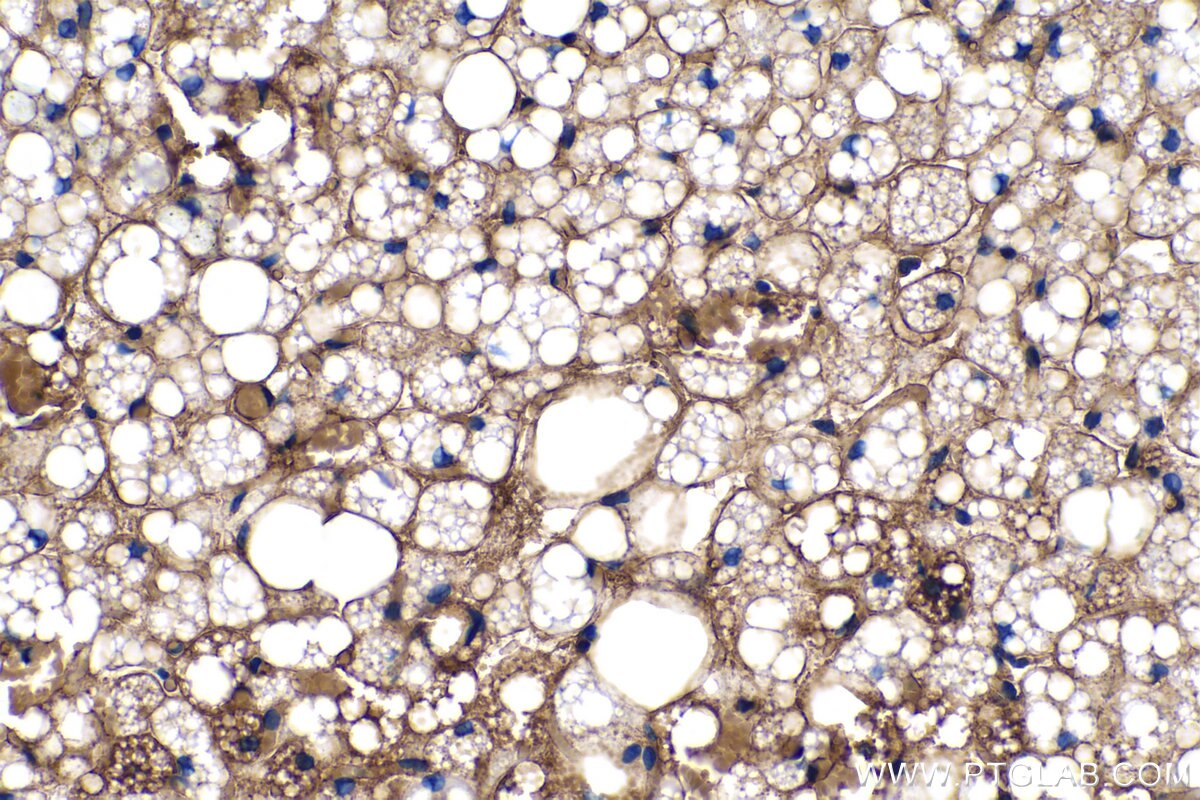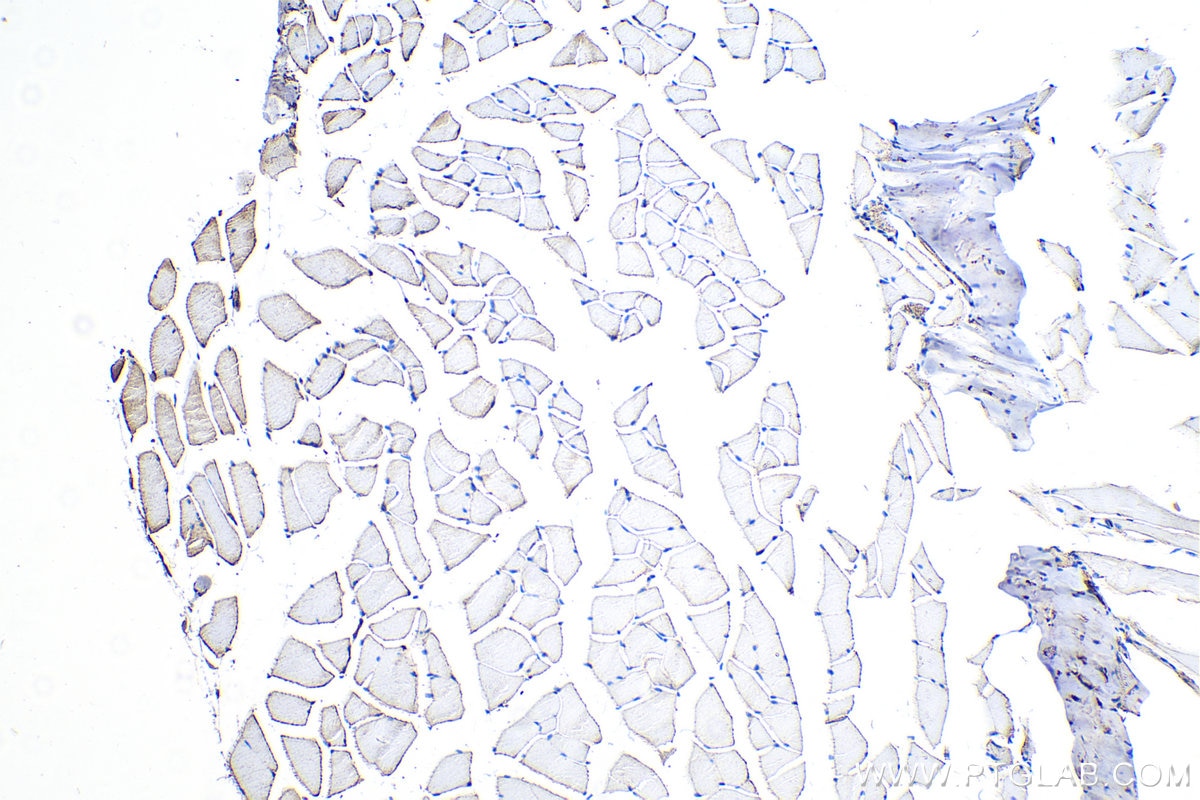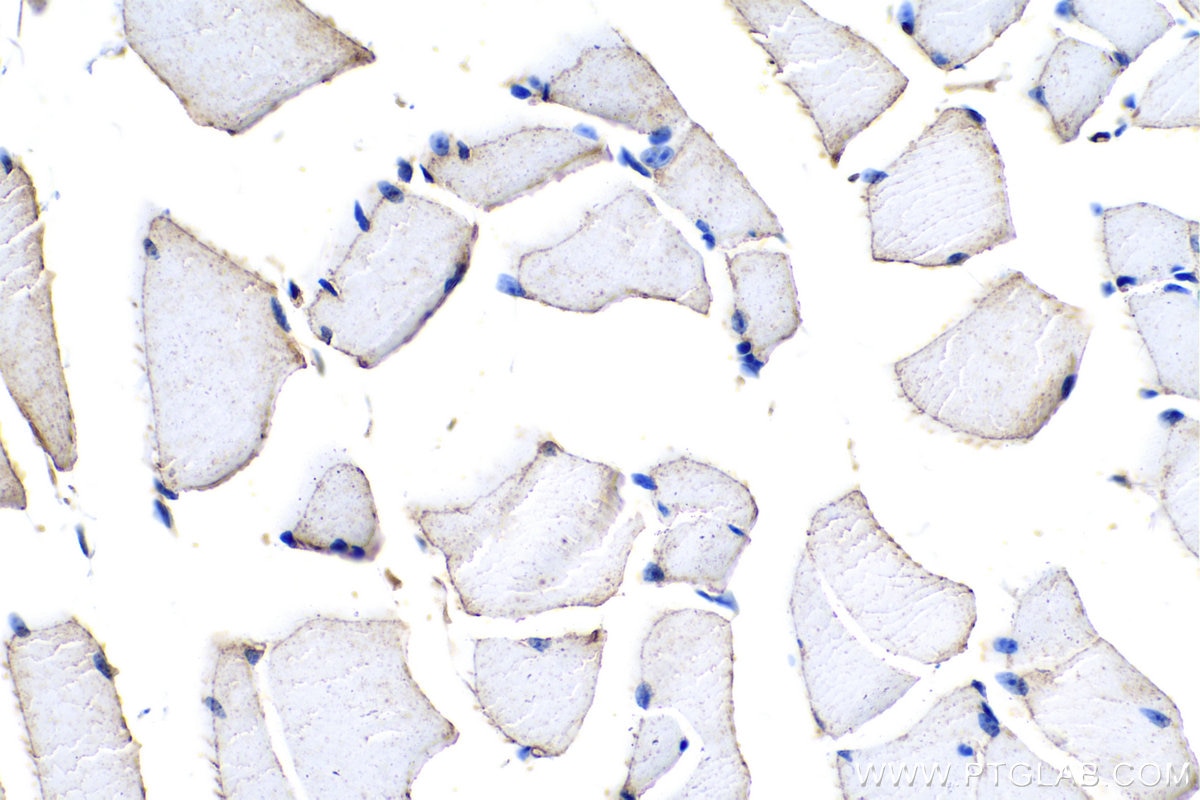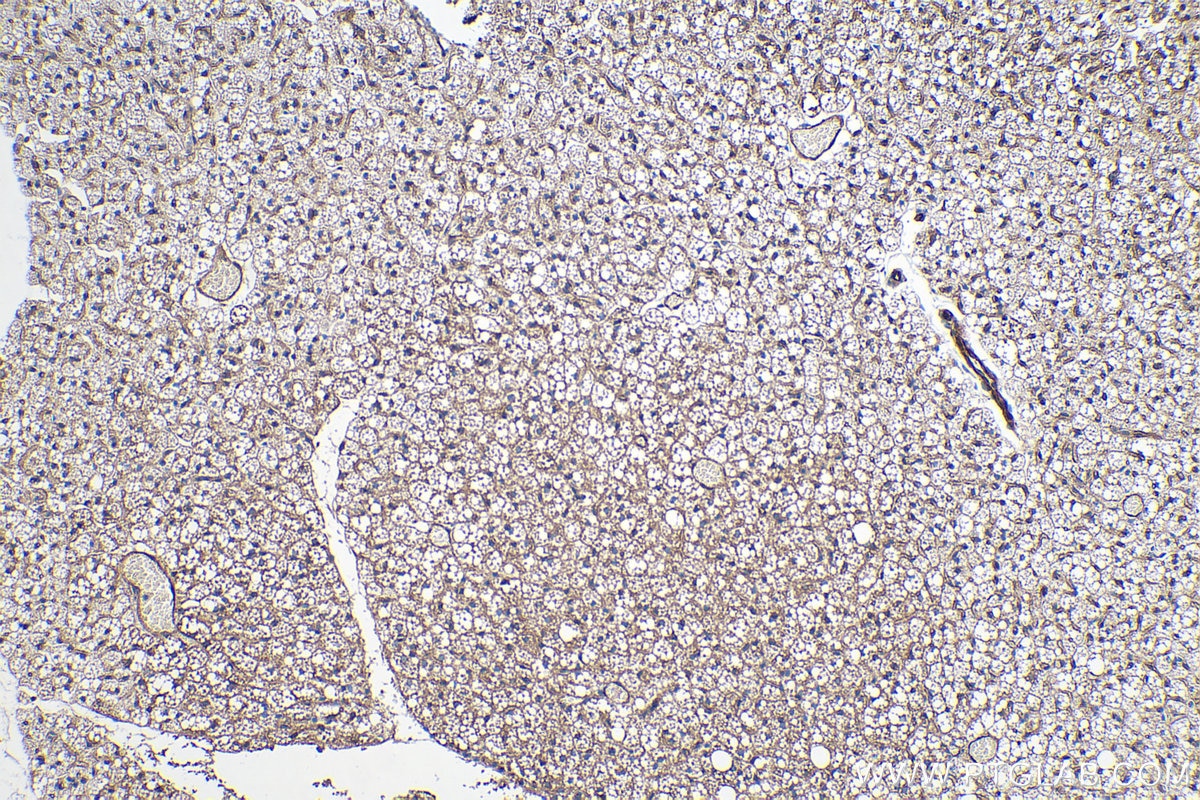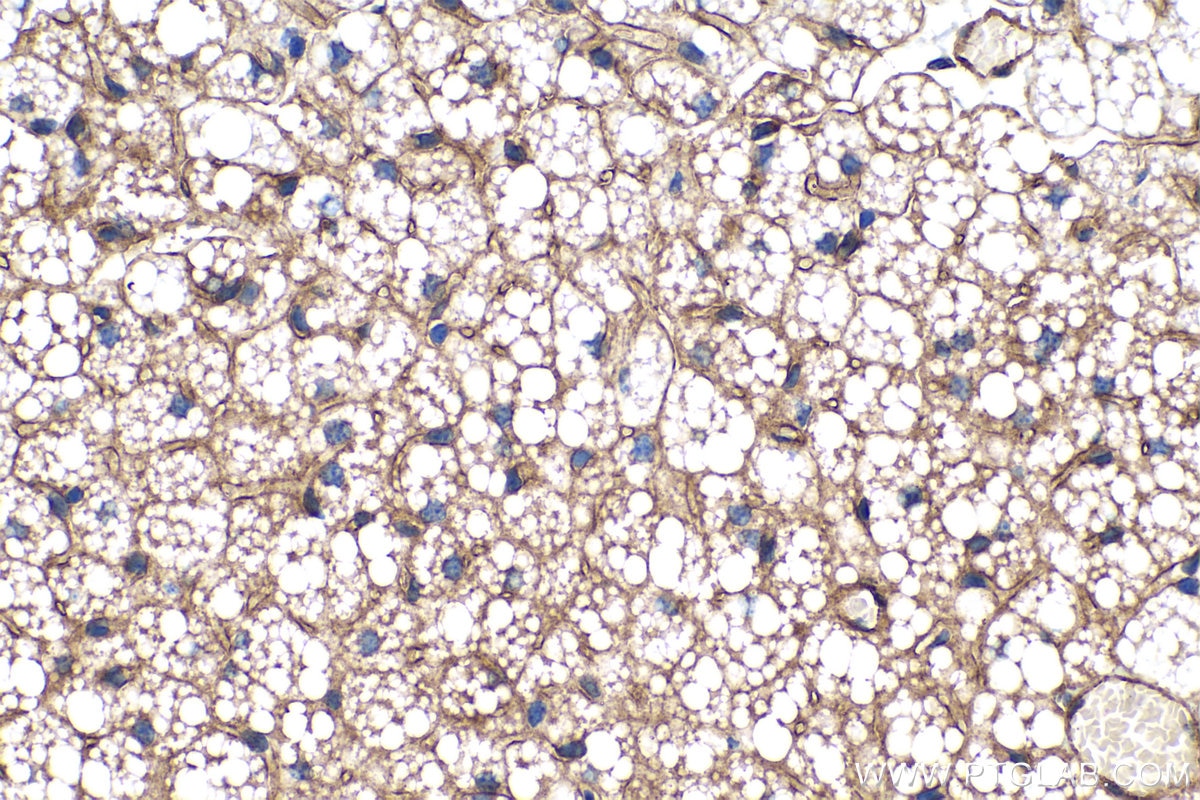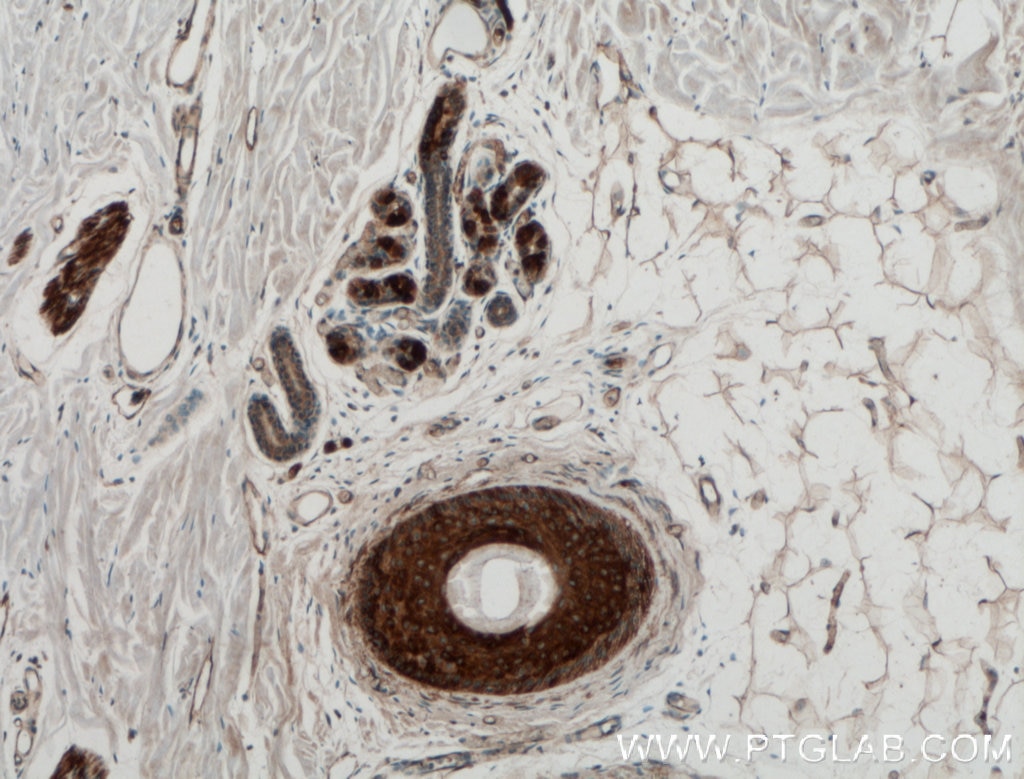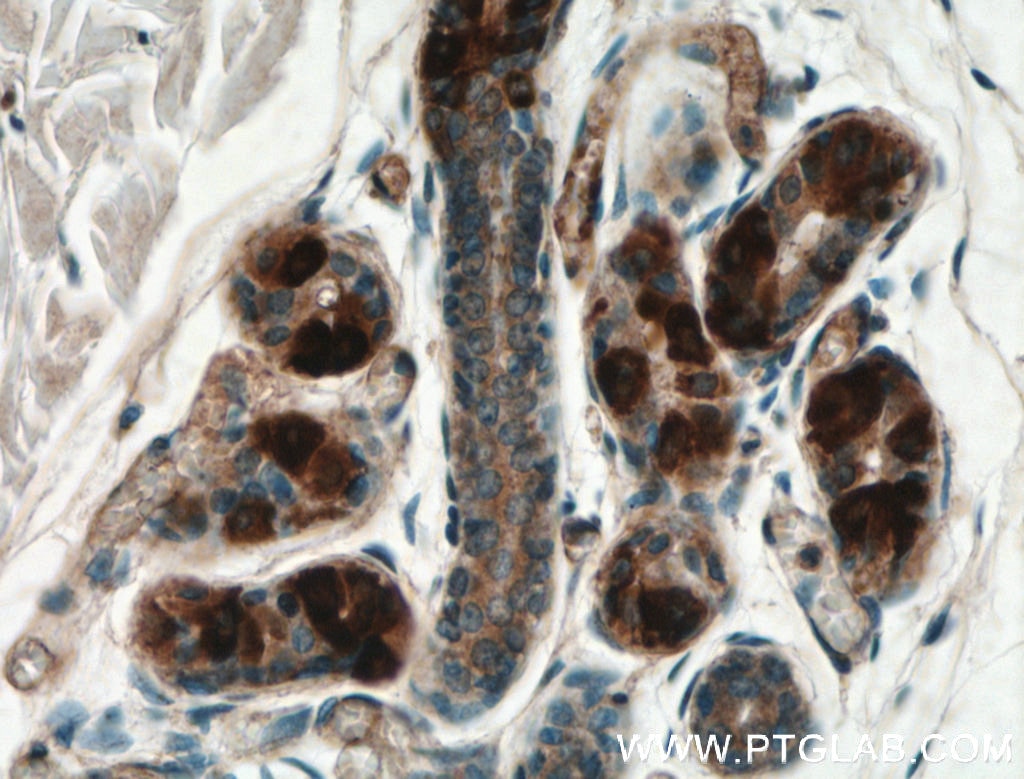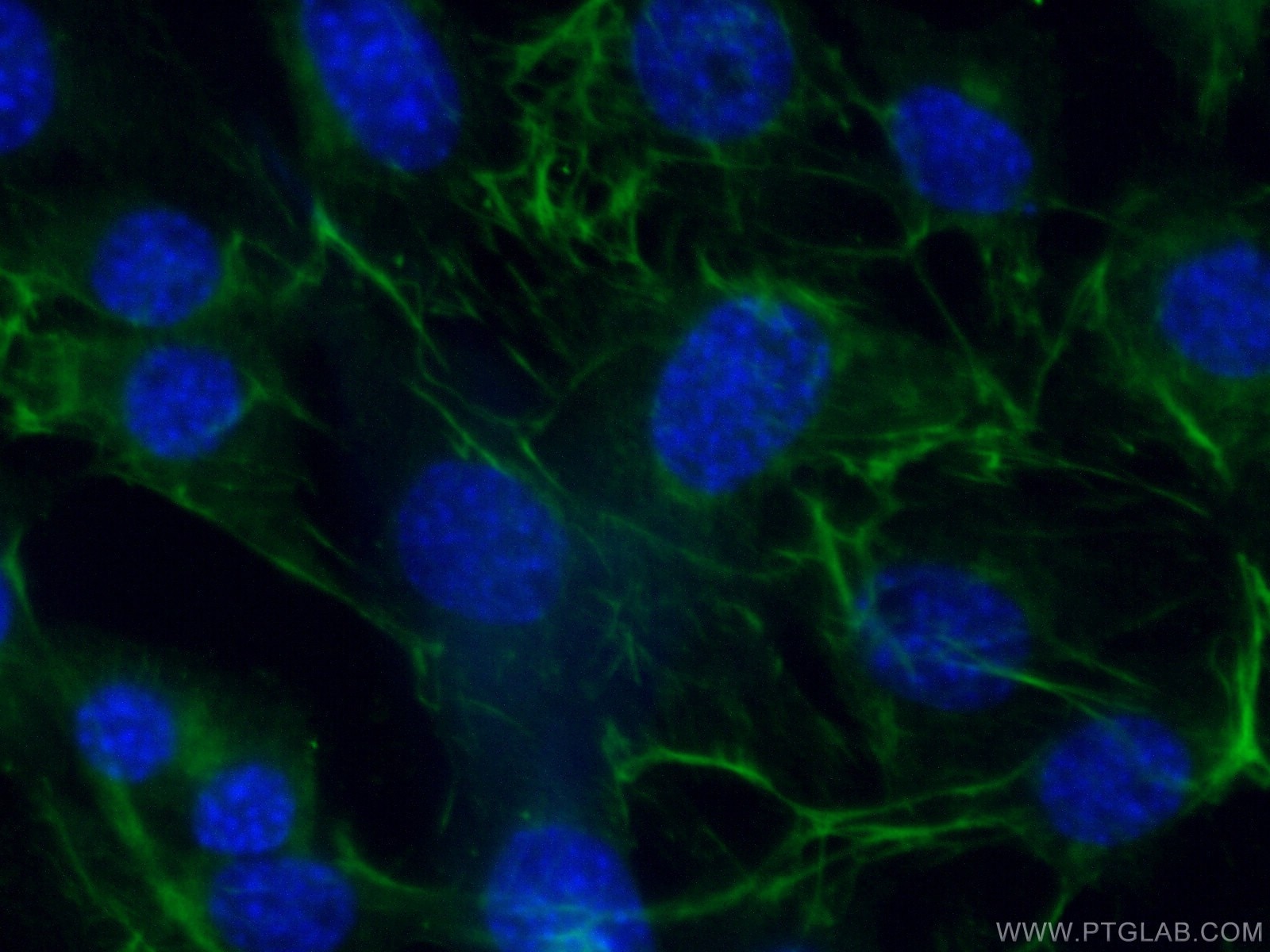Anticorps Polyclonal de lapin anti-Adiponectin
Adiponectin Polyclonal Antibody for WB, IF, IHC, ELISA
Hôte / Isotype
Lapin / IgG
Réactivité testée
Humain, rat, souris et plus (1)
Applications
WB, IHC, IF/ICC, ELISA
Conjugaison
Non conjugué
N° de cat : 21613-1-AP
Synonymes
Galerie de données de validation
Applications testées
| Résultats positifs en WB | cellules NIH/3T3, cellules 3T3-L1 |
| Résultats positifs en IHC | tissu hépatique humain, tissu adipeux brun de souris, tissu cutané humain, tissu de cancer de la prostate humain, tissu de muscle squelettique de souris, tissu placentaire humain il est suggéré de démasquer l'antigène avec un tampon de TE buffer pH 9.0; (*) À défaut, 'le démasquage de l'antigène peut être 'effectué avec un tampon citrate pH 6,0. |
| Résultats positifs en IF/ICC | cellules NIH/3T3 |
Dilution recommandée
| Application | Dilution |
|---|---|
| Western Blot (WB) | WB : 1:200-1:1000 |
| Immunohistochimie (IHC) | IHC : 1:50-1:500 |
| Immunofluorescence (IF)/ICC | IF/ICC : 1:50-1:500 |
| It is recommended that this reagent should be titrated in each testing system to obtain optimal results. | |
| Sample-dependent, check data in validation data gallery | |
Applications publiées
| WB | See 17 publications below |
| IHC | See 1 publications below |
| IF | See 5 publications below |
Informations sur le produit
21613-1-AP cible Adiponectin dans les applications de WB, IHC, IF/ICC, ELISA et montre une réactivité avec des échantillons Humain, rat, souris
| Réactivité | Humain, rat, souris |
| Réactivité citée | Chèvre, Humain, souris |
| Hôte / Isotype | Lapin / IgG |
| Clonalité | Polyclonal |
| Type | Anticorps |
| Immunogène | Adiponectin Protéine recombinante Ag16304 |
| Nom complet | adiponectin, C1Q and collagen domain containing |
| Masse moléculaire calculée | 244 aa, 26 kDa |
| Poids moléculaire observé | 29 kDa |
| Numéro d’acquisition GenBank | BC096308 |
| Symbole du gène | ADIPOQ |
| Identification du gène (NCBI) | 9370 |
| Conjugaison | Non conjugué |
| Forme | Liquide |
| Méthode de purification | Purification par affinité contre l'antigène |
| Tampon de stockage | PBS avec azoture de sodium à 0,02 % et glycérol à 50 % pH 7,3 |
| Conditions de stockage | Stocker à -20°C. Stable pendant un an après l'expédition. L'aliquotage n'est pas nécessaire pour le stockage à -20oC Les 20ul contiennent 0,1% de BSA. |
Informations générales
Adiponectin (AdipoQ), an adipocyte-derived hormone, is one of the most abundant adipokines in the blood circulation. Adiponectin modulates a number of metabolic processes, including improving INS sensitivity and anti-inflammatory activity. The role of AdipoQ in reproduction is not yet fully understood, but the expression of AdipoQ in reproductive tissues has been observed in various animals and humans, including chicken testis, bovine ovary, and human placenta. Adiponectin exerts its effects by activating a range of different signaling molecules via binding to two transmembrane AdipoQ receptors, AdipoR1 and AdipoR2. AdipoR1 is expressed primarily in the skeletal muscle, whereas AdipoR2 is predominantly expressed in the liver. AdipoQ May play a role in cell growth, angiogenesis and tissue remodeling by binding and sequestering various growth factors.
Protocole
| Product Specific Protocols | |
|---|---|
| WB protocol for Adiponectin antibody 21613-1-AP | Download protocol |
| IHC protocol for Adiponectin antibody 21613-1-AP | Download protocol |
| IF protocol for Adiponectin antibody 21613-1-AP | Download protocol |
| Standard Protocols | |
|---|---|
| Click here to view our Standard Protocols |
Publications
| Species | Application | Title |
|---|---|---|
Diabetes PRMT4 Facilitates White Adipose Tissue Browning and Thermogenesis by Methylating PPARγ | ||
Int J Mol Sci Piperine Improves Lipid Dysregulation by Modulating Circadian Genes Bmal1 and Clock in HepG2 Cells. | ||
Respir Res Isthmin-1 attenuates allergic Asthma by stimulating adiponectin expression and alveolar macrophage efferocytosis in mice | ||
J Nutr Biochem All-trans retinoic acid induces lipophagy through the activation of the AMPK-Beclin1 signaling pathway and reduces Rubicon expression in adipocytes | ||
Sci China Life Sci Compression loading of osteoclasts attenuated microRNA-146a-5p expression, which promotes angiogenesis by targeting adiponectin. | ||
Dig Dis Sci Adiponectin Alleviates Intestinal Fibrosis by Enhancing AMP-Activated Protein Kinase Phosphorylation. |
